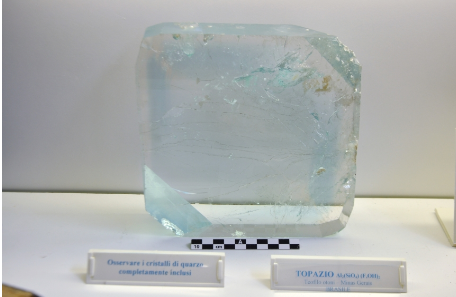Information Technology Skills
Final Project (group 19)
Crystal Habit
The last feature of minerals we aim to explore is crystal habit. The crystal habit of a mineral refers to the characteristic external shape or form that a mineral’s crystals tend to grow in under natural conditions. This shape results from the mineral’s internal atomic structure and the environmental conditions during its formation. To investigate this, we used Gemini to determine whether a property for crystal habit exists within the ArCo Knowledge Graph by analyzing the names of other object properties associated with mineral characteristics. We deployed the Few-shot prompting technique

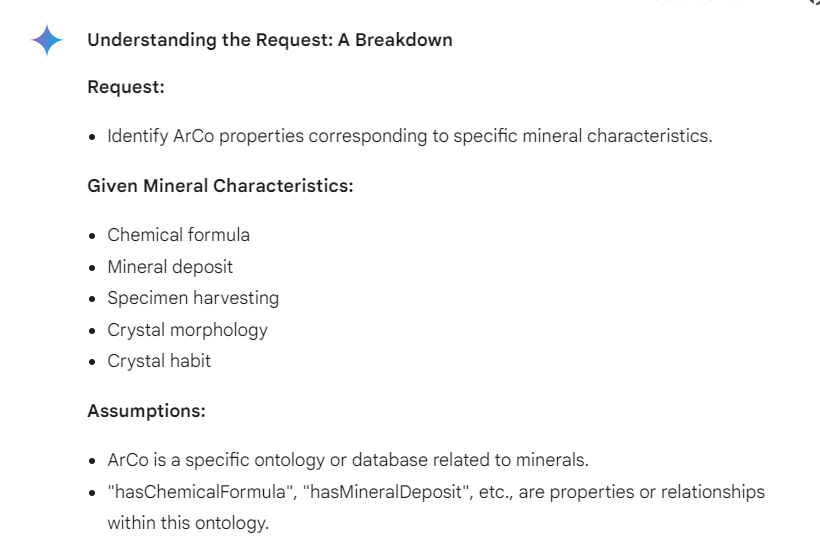
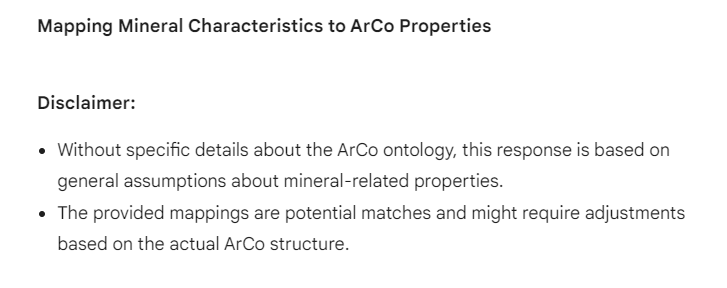
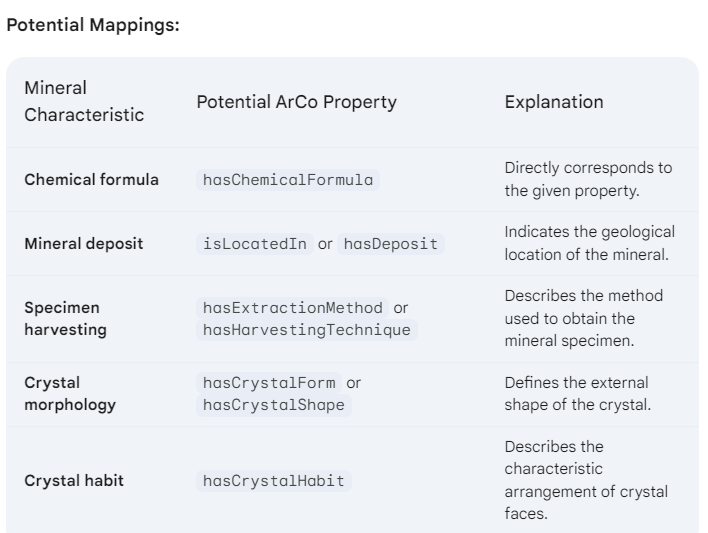
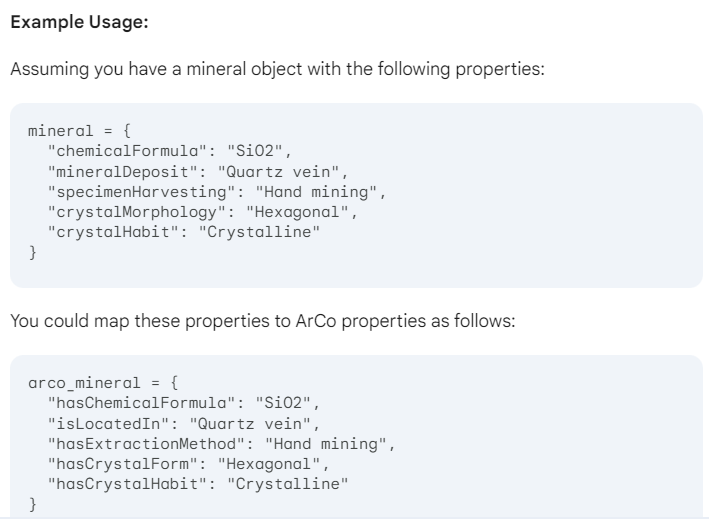
Gemini indicates that crystal habit is associated with the hasCrystalHabit property. Nevertheless, since we are uncertain about the domain and range of this property, as well as its actual existence, we consulted the Natural Specimen Description Ontology to verify this information.

We discovered that a class called Crystal Habit does indeed exist and serves as the range for the hasCrystalHabit property, which is the focus of our inquiry. We then constructed a query to retrieve the labels of subjects and their values associated with the hasCrystalHabit property. Specifically, we aimed to find the crystal habit of an entity labeled ‘topaz’ in Italian. The expression ‘&&’, the logical-and, combines the two conditions expressed respectively by the operators STR and LANG.
PREFIX a-spe: <https://w3id.org/arco/ontology/natural-specimen-description/>
SELECT DISTINCT *
WHERE
{
?subject a-spe:hasCrystalHabit ?value.
?value rdfs:label ?valueLabel.
OPTIONAL {?subject rdfs:label ?subjectLabel}
FILTER(STR(?subjectLabel = "topaz") && LANG(?subjectLabel) = "it")
}
LIMIT 500
From the resulting list, we identified two items: quartz and topaz, which have crystal habits labelled as granulare and tabulare respectively.



The following are the last two triples which connects two subjects, namely two specimens of quartz and topaz respectively, with their related crystal habits through the property hasCrystalHabit, which we have previously identified :
NEW TRIPLE 5
- https://w3id.org/arco/resource/NaturalHeritage/2000189686-1 → Subject: quarzo (esemplare)
- a-spe:hasCrystalHabit → Predicate / Property
- https://w3id.org/arco/resource/CrystalHabit/2000189686-1 → Object / Property value: “granulare”
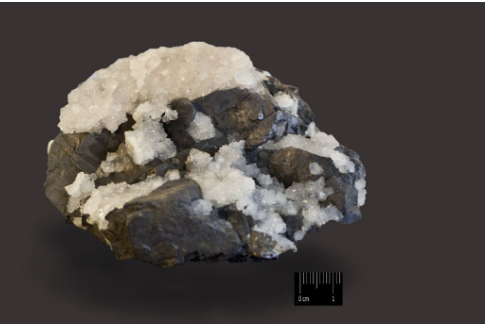
NEW TRIPLE 6
- https://w3id.org/arco/resource/NaturalHeritage/1600302243 → Subject: topazio (esemplare)
- a-spe:hasCrystalHabit → Predicate / Property
- https://w3id.org/arco/resource/CrystalHabit/1600302243 → Object / Property value: “tabulare”
